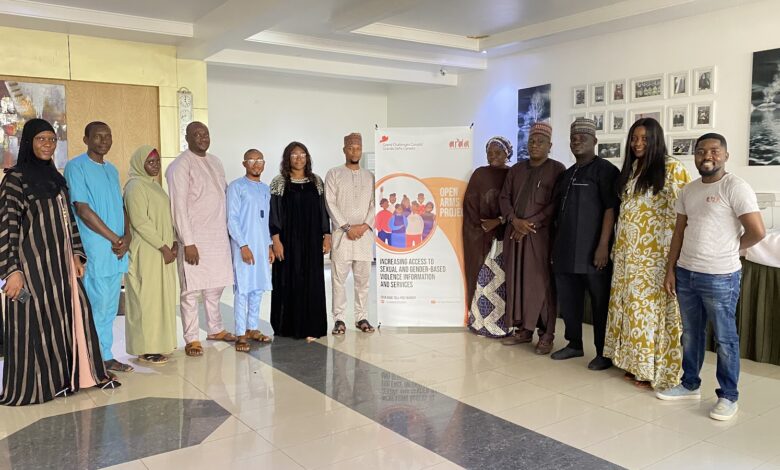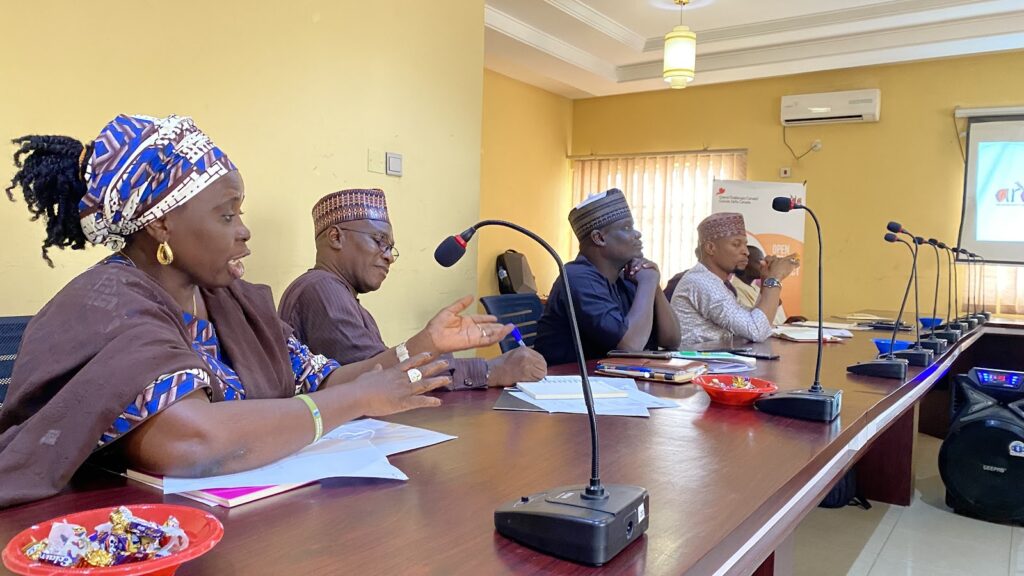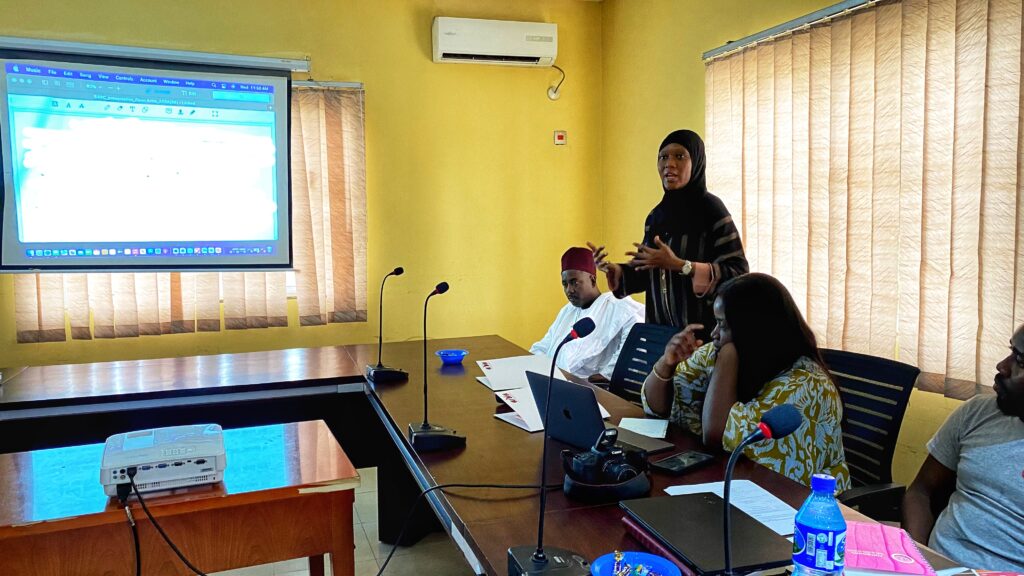‘No Day Passes Without Case Of Gender-Based Violence In Maiduguri’
To address this problem, ARDA-DCI, a non-profit, launched a project to enhance the response of community stakeholders and humanitarian actors on issues of gender-based violence in Borno, Northeast Nigeria.

Gender-based violence cases are recorded regularly in Maiduguri, the capital of Nigeria’s northeastern state of Borno, and ARDA Development Communication Inc. (ARDA-DCI) has launched a project aimed at tackling the trend.
Speaking at an engagement meeting held by the non-governmental organisation on Wednesday, Aug. 17, Comrade Lucy D. Yohanna noted that her organisation receives reports of Sexual and Gender-Based Violence (SGBV) daily in Maiduguri, a community whose population has swelled since the Boko Haram conflict started over a decade ago.
‘‘I am currently facilitating justice for some survivors of rape and GBV-related cases in Maiduguri,” Yunana said, who is executive director of the Borno-based Women in the New Nigeria and Youth Empowerment Initiative (WINN).
“There is no day I will not receive reports of such cases, including domestic physical violence.”
She believes closely following up on the crimes significantly increases the chances of getting justice for victims. She also mentioned that poor access to the justice system and inadequate forensic investigation processes often lead to the conviction of wrong suspects.
Amid an ongoing humanitarian crisis in the region, alarming rates of SGBV, including at displacement camps, have raised concern among stakeholders.

The purpose of the meeting on Wednesday was to introduce the Open Arms Project in Borno to enhance the response of community stakeholders and humanitarian actors on SGBV-related issues in the state.
Tawakalit Kareem, senior programme officer at ARDA-DCI, said the project “is supposed to provide information services, referrals and connection to trained counsellors for survivors of sexual and gender-based violence”.
The project is currently implemented in Lagos, Southwest Nigeria, and Borno in the North.
According to Kareem, the project is bridging the gap affecting the impact of GBV and sexual violence management services in the country.

‘‘This is about Nigeria in general. Currently, we have just 32 sexual assault referral centres across 19 states in Nigeria. So we wanted to create a solution that is backed by technology and which reduces some of the weight on sexual referral centre,” she explained.
“We find that there are sometimes survivors who don’t even want to see a counsellor yet. Maybe they’re not ready. So the solution aims to fill in that gap to ensure that they at least have access to information in the meantime. And even when they’re ready to speak with a counsellor, they have access to referral services too, so they can get the help they need.”
She added that the project would provide sustainable toll-free numbers for survivors to interact with professionals. It would provide specialised training opportunities for professionals and ensure the application of “do no harm” principles during the implementation.
During the meeting, the stakeholders agreed that the culture of silence, poor legal service, and social victimisation are major challenges affecting SGBV victims in Maiduguri.
Marykim Nwune Jerry, a humanitarian worker who specialises in SGBV services in Borno, noted that progress, however, is being recorded.
‘‘We are recording remarkable change on the issues around GBV in local communities we are working on, for example, the level of awareness. And sensitisation through various initiatives and programmes implemented is really satisfactory. People are willing to participate in the process of GBV management.”
She added that in Borno, the level of awareness on such issues is commendable despite records of cases increasing. This implies that people are open to reporting incidents of gender-based violence.
‘‘Survivors must not be silent over such traumatic experiences,” she stressed.
Muhammad Bukar Kolo, from the National Orientation Agency (NOA) in Borno, said it was important to engage leaders at various levels in the state on the issue of gender-based violence because “many communities are sensitive to the leadership structures”.
He noted that partnership with the NOA is a good approach to reaching out to a wide range of people in that state as they have a system designed to get across to everyone.
“I call on GBV actors to collaborate with the agency whenever they have subjects to share with the public, it’s very important,” Kolo added.
Support Our Journalism
There are millions of ordinary people affected by conflict in Africa whose stories are missing in the mainstream media. HumAngle is determined to tell those challenging and under-reported stories, hoping that the people impacted by these conflicts will find the safety and security they deserve.
To ensure that we continue to provide public service coverage, we have a small favour to ask you. We want you to be part of our journalistic endeavour by contributing a token to us.
Your donation will further promote a robust, free, and independent media.
Donate HereStay Closer To The Stories That Matter




